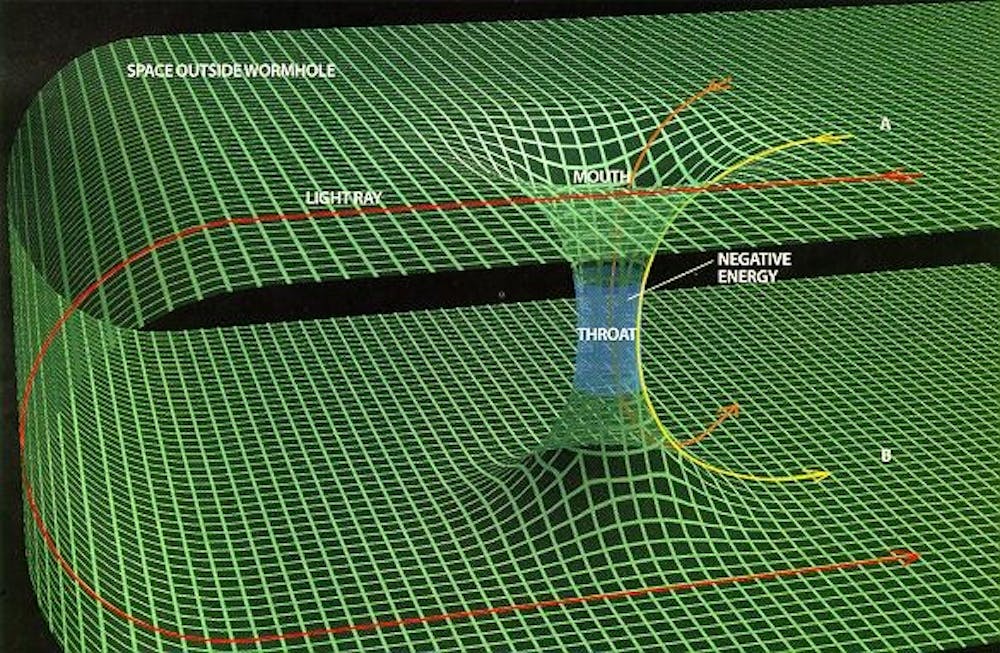The buzzwords and labeling of the time travel processes gets more confusing as we go along. But in an attempt to help it all make sense, here’s mini-vocabulary lesson on the words and phrases usually associated with traveling through time.
Wormholes: Developed as part of Einstein’s theory of general relativity, possibly involved with time travel if a transversed wormhole is in place. In that case, someone would enter one end of the wormhole going faster than the speed of light, move through the throat of it and then come back through the other end to the same spot. Time dilation makes it seem as though the moved end of the wormhole has aged less than the stationary end, but that’s only to the outside perspective. Or something.
Exotic matter: Hypothetical negative energy that would be necessary to create transversed wormholes and other crazy physics-related events.
Twin paradox: In this instance, a twin makes a journey to space at the speed of light, turns right around and travels the same speed back to earth to find his ground-bound twin having aged more. Except the non-traveling twin thinks THEY are the ones that seem younger. And it can only be solved by relative motion.
Grandfather paradox: Perhaps one of the most famous time travel buzzphrases, this one poses the question that suppose you went back in time to kill your grandfather, which would then mean your parents as you know them would cease to exist, and thus so would you. BUT if you don’t exist, then you cannot ever go back in the time travel apparatus to kill your grandfather in the first place. That makes complete sense.
Many worlds theory: Formulated by Hugh Everett and later solidified and popularized by Bryce DeWitt, this theory proposes that every event is a branch point where any interpretation or outcome can – and does – occur completely real, but also completely separate from one another. Every result exists in its own world and then creates new branch points for more, separate events. Think Schrödinger’s cat.
Parallel universes: Similar to the many worlds approach, this theory surmises that once someone leaves their original universe and then changes something, they’ve created a parallel universe where the new events occur, but the original time still exists out there somewhere.
Eternalism: Sometimes referred to as the Block Time theory, this philosophical approach is used in Vonnegut’s “Slaughterhouse Five” where all time exists at all points. The past is no longer the past, the future is no longer the future and the present is, well, no longer the present. Instead, they are all real, thought of as directions to take rather than concrete states.
Presentism: On that same note, Presentism believes that the past and future do not exist at all, and instead all that matters is the present.
Predestination/”Whatever happened, happened”: This idea, most recently used in season five of “LOST,” shows a time travel that does not change anything. Thus, whatever was supposed to happen, does. Always, every. single. time. If one travels back to 1977, it might be the past to them in terms of the traditional thought of year-based time, but it then becomes their future and their life was always supposed to play out that way. Theoretically, you could be born in 1970, live to 2007 and then be transported to 1977, where you die in 1984.
Course correction: Also seen in “LOST” and related to predestination; events happen here as way to clean up any messes created by time travel. Thus, if someone travels back in time to avoid death by axe murderer, if they’re predetermined to die, they’ll soon get hit by a bus. And if they avoid that, they’ll drown. You get it.
I hope this helps.
Time travel glossary

Get stories like this in your inbox
Subscribe





